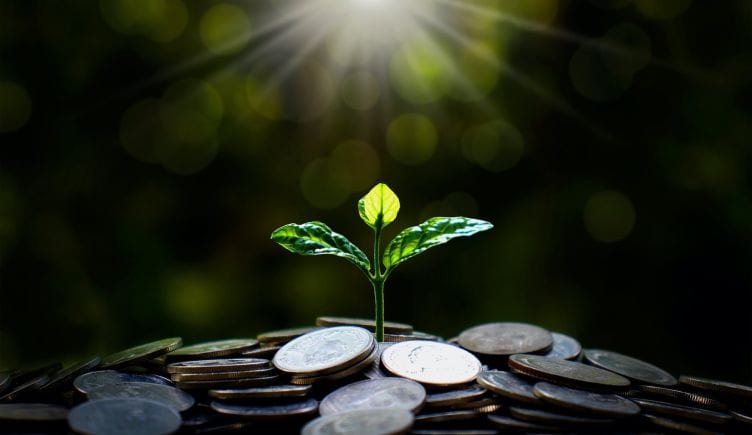There’s a lot of green in green.
That’s the principle that’s driven record participation in socially responsible investing (SRI) and so-called ESG funds — which score how companies perform along environmental, social and governance criteria — in recent years. According to some estimates, ESG assets now total more than $30 trillion.
The rush is buoyed by research that indicates sustainable funds perform as well or better than conventional funds. The trend seems to have continued during the pandemic, too. Stocks at companies with strong sustainability and ethics metrics fared better than those with low scores in 2020, according to research from the Haas School of Business at the University of California, Berkeley.
What Is Socially Responsible Investing?
The interest in sustainable funds makes sense, as younger generations concerned with climate and social justice want to put their money where their principles are. The deliverability, on the other hand, goes against decades of financial and economic dogma, particularly the Milton Friedman and Chicago School that argued companies have responsibility only to their stockholders, not to society at large.
But as investors see the clock ticking on fossil fuels and connect the dots between ESG and risk — green industries will be less exposed to public outcry in the face of climate crises — a correlation once considered impossible by the establishment is now accepted wisdom.
“There’s more than just the bottom line, there are also other stakeholders,” said Peter J. Klein, chief investment officer and founder of Aline Wealth, referencing what’s known as the triple bottom line: profit, people and planet. “I think we’re moving more toward that, and I don’t think we’ll ever move back away from it.”

Uniting Around a Common Standard
Socially responsible investing is nothing new. It’s often credited with helping hasten the fall of South African apartheid in the 1990s and could be said to date back to the 1700s, when Quakers forbade their ranks from profiting from the slavery system. But since it evolved to encompass ESG investing, quite a bit has changed — especially the swelling number of different scoring rubrics.
Right now, there’s no universal standard for ESG reporting. Instead, the landscape is commonly referred to as an alphabet soup of approaches. The Global Reporting Initiative (GRI), the Sustainability Accounting Standards Board (SASB) and the United Nations’ Sustainable Development Goals (UN SDGs) — 17 goals ranging from poverty eradication to gender equality to clean water — are just a few of the widely-used standards or standard providers.
The soup thickens further when looking at the number of organizations attempting to streamline reporting. The International Financial Reporting Standards foundation (IFRS) — a global accounting organization reportedly working with SASB — is expected to create a Sustainability Standards Board (SSB), to which most countries in the world would likely adhere. The Financial Accounting Standards Board (FASB), the authority on accounting standards in the United States, could then use those requirements as a jumping off point for its own, which could potentially be sanctioned by the federal government. Got all that?
The SEC will have ultimate say. “Climate and ESG are front and center” for the agency, acting chair Allison Herren Lee said in March, but it remains to be seen whether it will give standard-setting powers to a new outfit, hand that off to an existing one or forge its own rules.
“Should the commission designate a climate or ESG disclosure standard setter?” asked Lee, among other complex ESG policy questions, in a notice for public input. “If so, what should the characteristics of such a standard setter be? Is there an existing climate disclosure standard setter that the commission should consider?”
The notice is open for input through June 15.

How Do You Quantify Sustainability?
Even though companies are often wary of standardizing measurements, which they consider to be variable by industry, investors are eager for something more uniform.
“[U]ntil we have some consistency and an agreed-upon set of standards, ESG remains a ‘buyer beware’ sector for many investors in spite of the extensive data supporting this investing approach,” wrote noted impact investor Jean Case in a recent Barron’s editorial.
Indeed, some firms have opted to go DIY in the face of such confusion. Panagora Asset Management and MFS Investment Management are among those that complement ESG ratings from the various index providers with raw data gathered from direct company disclosures, NGOs and sustainability watchdog groups, reported WatersTechnology.
Peter Krull, founder of socially responsible investing firm Earth Equity Advisors, works primarily with individual investors and also takes a melded approach. His firm’s signature portfolio incorporates data from Morningstar’s ratings provider, Sustainalytics, alongside data typically gathered from two other ESG ratings firms, among other streams. Then, the firm creates its own composite scores for fundamentals, ESG and broader industry opinion, and uses that information to drive category decisions — such as small, medium and large cap. The portfolio currently includes Vestas Wind Systems, a Danish wind turbine manufacturer; Microsoft, which has committed to 100-percent carbon neutrality; and biotech service provider Thermo Fisher Scientific, among others.
“I don’t pull data only from one company,” Krull said. “I pull from multiple sources. That way, I at least get a blend of opinions, because ESG metrics aren’t always just black and white. A lot of them are simply opinions.”
ESG is just a tool, and one that has to be rigorously vetted in service of larger socially responsible investing, as Krull sees it. His chief criticism is shared by skeptical institutional-investor counterparts: There’s sometimes simply too much cognitive dissonance in certain ESG indexes.
Krull pointed to BlackRock, a prominent ESG evangelist that also includes giants of fast food and fossil fuels in one of its ESG-aware funds, the iShares ESGU. In fact, a 2019 Wall Street Journal review found that eight of the ten largest sustainable funds were invested in oil and gas.
“There’s no common sense ... Should ExxonMobil be in a sustainable portfolio? Should McDonald’s be in a socially responsible portfolio?” Krull said. “So while ESG is great to give you some basic information as to how a company performs, you still have to look at it with a grain of salt and ask those questions.”
A BlackRock spokesperson told Built In in a statement that the iShares ESGU “invests in companies with positive ESG characteristics across all industries and sectors.”
“We also offer funds that provide targeted exposure to specific sustainable outcomes or screen out fossil fuel companies along with a range of other industries,” the statement continued. “Clients have different approaches to investing sustainably, and we offer the broadest range of sustainable solutions in the industry to help them meet their objectives.”
BlackRock is also reportedly working to influence ExxonMobil to reduce emissions.
For Krull and Earth Equity Advisors, every ESG and fundamental number crunch for a potential investment must ultimately pass the smell test, he said.
“Is this company actually pushing us forward? Is this company making the world a better place? If I can answer yes, then it’s a possibility for us. But we’re not just basing our decisions solely on some quantitative measure that can be easily manipulated by the company,” he said.

Greenwashing Is Rampant
Speaking of BlackRock, the firm’s former chief investment officer for sustainable investing, Tariq Fancy, recently disparaged SRI/ESG, saying that ESG products “have no demonstrable impact” on environmental concerns, and the solution is instead “a systematic” one that “can only come from government leadership.”
A BlackRock spokesperson told Built In the firm believes that greenwashing, or wrongly implying strong environmental stewardship, “is a risk to investors and detrimental to the asset management industry’s credibility, which is why we strongly support regulatory initiatives to set consistent standards and increase transparency for sustainable portfolios.”
Fancy, meanwhile, is part of a growing genre of ESG veterans-turned-skeptics who caution against the framework’s capacity to muddy the picture. That genre includes Ken Pucker, a senior lecturer at Tufts University’s Fletcher School who served as Timberland’s chief operating officer from 2000 to 2007. He helped shepherd the company’s commitment to environmental and human rights but ultimately came to the conclusion that, as he wrote in Harvard Business Review, “it’s extremely difficult to change the rules of competition in an industry — doing that requires much more than individual action.” (Emphasis his.)
Pucker told Built In that the question of whether or not a given ESG framework is toothless is moot, since reporting is voluntary and potentially selective, with companies able to release figures intermittently or fail to account for downstream emissions.
Most companies that publish data fail to track Scope 3, or indirect, emissions. Examples include employee travel or the environmental impact of a product after sale. That’s not a simple thing to track, but if regulatory bodies had the will, industries would find the way, according to Pucker.
“If the SEC required you to report on Scope 3 emissions, people would figure out how to do it, just like they figured out how to report on inventory for GAAP in their financial record reporting,” he said. “It’s not easy, but you develop systems to do it.”
Another prominent shortcoming, Pucker noted, is the prevalence of so-called negative screening. Those are portfolios that merely exclude certain industries, like tobacco and firearms. Nearly $20 trillion of the $30 trillion in ESG assets falls into that category, according to the most recent review by the Global Sustainable Alliance.
“That means two thirds of what’s called ESG or SRI investing is just investing, where someone may choose to exclude tobacco companies,” he said. “That’s not going to help on the climate front.”
Sporadic auditing leaves another door open for greenwashing. Desiré Carroll, of the Association of International Certified Professional Accountants, told Accounting Today that even though 90 percent of S&P 500 companies publish sustainability reports, less than 30 percent of that slice “actually subjected [the report] to an external assurance engagement,” or review by an outside party. There’s some evidence the trend is improving, but it remains something to watch out for among investors.
Also, there’s risk of companies papering over, say, poor E with better S or G. Some metrics allow a company to make up lost points in one category with points won from another — but having wealthy white women on a board, while better than boys’ clubs of yore, won’t in reality offset any emissions, nor will it account for lack of social, economic, racial or other types of diversity. There exist, essentially, carbon credits payable with gestures of inclusion.

Will Socially Responsible Investing Make a Real Difference?
All of this illustrates the central divide in opinion on ESG as it stands today. Despite ESG’s loopholes, its rise could still be viewed as a sign of progress, and adherents stress to not let perfect be the enemy of good. Skeptics, on the other hand, say not only does measurement not equate to impact — it’s probably asking too much of investment strategy to single-handedly fix our planet, anyway — but ESG also fails to deliver a proper roadmap for genuine ethical investing.
But just as we all should still recycle even while waiting for more meaningful, structural change, investors have to navigate the system as it stands. One alternative within socially responsible investing is impact investing. Unlike negative screeners, impact investors more actively invest in companies and industries that aim to directly boost global quality of life, while still delivering returns. Notable firms include Triodos Investment Management, the Reinvestment Fund and Community Reinvestment Fund, USA.
And the DIY approach mentioned earlier could have broader implications beyond well-funded institutional investors, who can parse reams of alternative data for truer ESG signals.
George Serafeim — who “did ESG before it was cool,” as his Twitter bio rightly states — heads up the Impact-Weighted Accounts Project at Harvard Business School. The project uses big data and machine learning to paint fuller pictures of a company’s sustainability or lack thereof. That involves mining wide swaths of datasets to evaluate things like gender and racial gaps in highly-paid roles, plus downstream considerations like product recyclability and product safety.
Serafeim did not return a request for interview, but he described his work to the Financial Times as “a giant data generation and data platform exercise.”
Such ventures underscore the fact that even when a universal measurement standard emerges — a “necessary, but not sufficient” step, Pucker said — large demand will still exist for vetted expertise and reliable data, be it for institutional or individual investors.
“It’s hard to police greenwashing,” Krull said. Doing so, he added, comes only by way of “consumers and professionals who know the difference being vocal about it … just because it says something on the label doesn’t necessarily make it so under the hood.”

